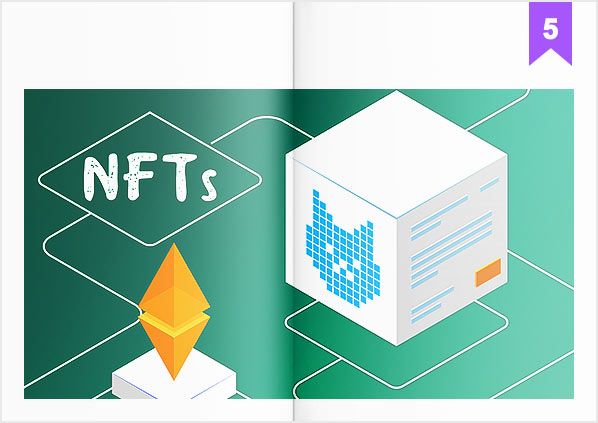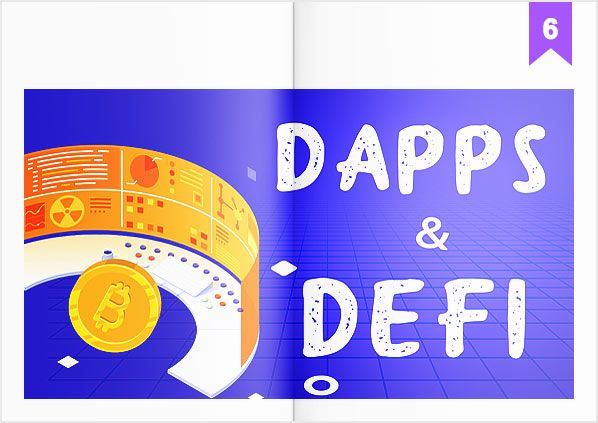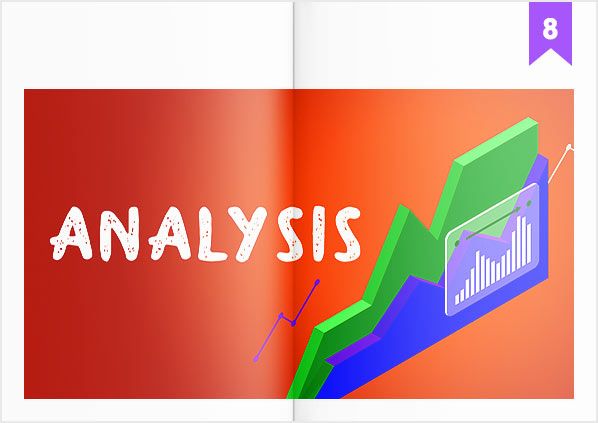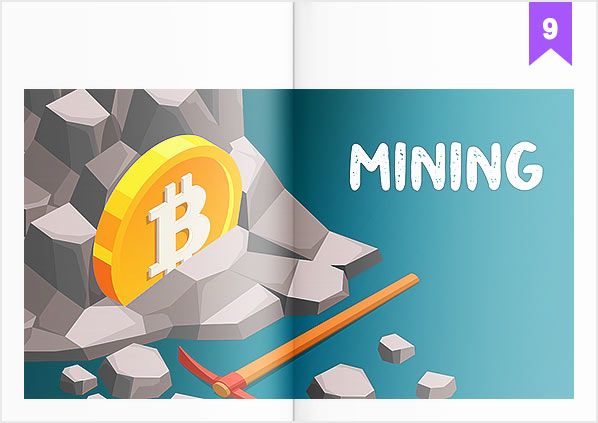DEX VS CEX: Two Sides of the Crypto Exchange Industry
In this section, we are going to talk about the differences between DEXs VS CEXs, or decentralized and centralized crypto exchanges!
When you’re just starting out with crypto, one of the very first things that you’ll probably think to do is find yourself an exchange platform - a place where you could buy, sell, or trade cryptocurrencies whenever you please. During your research, you will likely soon notice that there’s a huge variety of different exchanges to pick from - that can be overwhelming!
In addition to that, you might also see two large groups of people, arguing online - fans of CEXs, as well as avid DEX supporters. If all of that sounds like alien-speak to you, worry not - this is where I come in, to help you understand these complicated crypto concepts, easily!
In this section, we’re going to talk about the differences between DEXs VS CEXs. I will first tell you what those two terms mean, in general, and after that, we’ll compare and contrast them, and figure out which of the two would fit your wants and needs the best!
So, let’s get to it!

Video Explainer
Video Explainer: DEX VS CEX: Two Sides of the Crypto Exchange Industry
Reading is not your thing? Watch the "DEX VS CEX: Two Sides of the Crypto Exchange Industry" video explainer
DEX vs CEX: Which is Best for YOU? (Explained with Animation)


What is a Centralized Crypto Exchange (CEX)?
Let's begin by jumping straight into the fun stuff, and talk about what are CEXs and DEXs, starting with the former.
What is a centralized crypto exchange, or a CEX? A really simple way of looking at it is this - most of the exchange platforms that you’ve heard about are probably considered to be CEXs! These include Binance, Kraken, KuCoin, Coinbase, and so on.

“Centralized” is the key term that we want to look at here. Essentially, it means that all of these exchanges have a single, governing authority behind them - such as a company or a designated team of people looking over and managing all of the processes of the exchange.
On top of that, CEXs are also known for how they deal with customers’ funds, as well as how they execute orders. Centralized exchanges use traditional order booking processes - you place an order to buy or sell some crypto, and it gets matched with another person’s order of the opposite nature.
To understand DEXs VS CEXs better, think of it this way - imagine that centralized exchanges are like ride-on-demand services. When you need to go to your friend’s house, you can press a few buttons, and order a ride from one of the available drivers. In order to book an actual ride, however, you will need to first register on the app, and provide it with your personal details, as well as a valid payment method.
So, while a service like this is very simple to use, and booking a ride takes only a few seconds to do, you need to, for a lack of a better term, “dox” yourself to the company - in other words, reveal a lot of personal information about yourself, before you can get a ride with one of their drivers.
That’s fine for a lot of people - at the same time, though, there are others who are less keen on handing over their names and payment details to a huge company. This group of people prefers to catch a taxi, the old-school way - find one in the nearest parking lot, or call up a taxi company and ask it to send a driver to their location.
Of course, this isn’t as convenient as clicking a few buttons on an app. However, it allows you to pay for your ride in cash, and preserve the privacy of your information. Essentially, this example works well to illustrate DEXs, or decentralized exchanges.
What is a Decentralized Crypto Exchange (DEX)?
What is a decentralized crypto exchange? As the term itself implies, DEX platforms have no single governing authority behind them. So, there’s no company that you could reach out to, and no CEO that you could look up, and blame if something went wrong.
How does a DEX work, then? Well, essentially, most DEXs are governed by something called DAOs, or Decentralized Autonomous Organizations - a key point in our DEX VS CEX comparison!

DAOs are, admittedly, a really complex topic to get into. If you’d like to figure out what is a DAO in a thorough way, there's a dedicated section for that in our Crypto 101 Handbook - check it out! For the sake of keeping things simple in this section, though, suffice to say that a DAO is a group of people who are fans of a specific cryptocurrency project, hold its token, and thus, have the right to vote on the direction of the project, its updates, and so on.
So, essentially, decentralized exchanges are governed by the actual users of these platforms. The lack of a centralized authority allows for these platforms to retain a lot of privacy and anonymity features - which is, once again, what some people are looking for, to begin with.
CEXs VS DEXs - Which is the Better Option for You?
Continuing on, now that you have a pretty good idea of what are CEXs and DEXs, the big question that remains unanswered is this - which one should you use?

Indeed, if we were to look at our earlier example with the drive-on-demand services and traditional taxis, the differences between the two are, admittedly, pretty negligible. Eventually, you would still end up driving to your friend's house - so, the end goal is the same.
With DEXs VS CEXs, though, things aren’t quite *that* simple. One of the first major differences that you will immediately notice between these two types of platforms has to do with usability.
Imagine that centralized exchanges are like modern, automatic cars. The cars are full of cool features, and pretty simple to drive. On top of that, there are plenty of additional widgets that are there to help you out on the road - automatic parking, cruise control, and so on.

With the top-tier CEXs, your cryptocurrency acquisition process is likely going to be super-simple, quick, and full of helpful guides along the way. Centralized exchanges tend to be very newbie-friendly, which is definitely a point worth considering!
On the other hand, decentralized crypto exchange platforms are like older, manual transmission cars. They still serve the same function - to take you from point A to point B -, but you need to be much more involved, and understand how the car works, in the first place.
This example illustrates the feeling that many people might have with DEXs. If you want to use a decentralized exchange, you need to already have a cryptocurrency wallet, as well as some funds within it. Then, you need to be able to find the coins or tokens that you’re looking to trade, verify their contract address, and so on.

It’s a far more complicated process than just hopping on a centralized exchange platform, and buying your first crypto in a matter of minutes!
The two other points that I’ve just mentioned are equally as important to consider - the fact that, with DEX, you need to have a wallet of your own, as well as the lack of traditional payment support on such exchange platforms.
As we’ve established previously, centralized exchanges allow you to store your crypto assets on their wallets. If you’d like to learn how that works, specifically, check out this section!
My point here, though, is that, with DEXs, this feature is not available. Now, is that a good or a bad thing? Well, it depends! While storing your cryptocurrencies on an exchange is super-convenient, it’s also a bit risky - what if the exchange gets hacked, and the hackers gain access to your assets?
On the flip side, decentralized exchanges eliminate this issue, altogether. You are the only one responsible for what happens to your cryptos - even if the underlying exchange gets hacked, since you aren’t storing your cryptocurrencies on it, your funds would technically be safe. That being said, some people just want to avoid the hassle that comes with managing a wallet of your own, or want to have the chance to communicate with customer support, if something goes wrong - a feature that, once again, isn’t available with decentralized exchanges.
Traditional payment methods are another key point to mention, too. If you’re looking to *BUY* cryptocurrencies with euros, US dollars, or any other traditional currency, then centralized exchanges are kind of your only option. That’s because DEXs don’t have this feature - remember, they are anonymity-driven! There wouldn’t really be all that much anonymity if you’d end up revealing all of your bank details to the exchange, now would it?

To add to all of that, comparing DEXs VS CEXs, you will also soon notice that the latter are a bit primitive, when compared to their centralized counterparts. While centralized exchanges aim to offer as many different features to their users as possible (just take a look at Binance, as an example), DEXs are really mostly focused on one, single thing - trading one crypto asset for another.
Now, while it may seem like centralized exchanges are superior to DEXs in every single way, that really isn’t the case. Remember - with a centralized crypto exchange, you will have to reveal a lot of information about yourself, in addition to your bank details, residential address, and so on. There is no anonymity - something that’s still considered by many to be one of the core pillars of crypto and blockchain technology!
Furthermore, CEXs are also usually very slow to add new coins & tokens, and some platforms even have a habit of freezing their users’ funds, or halting their trading functionality for any and all reasons they see fit. None of these are issues that you would come across with a decentralized exchange!
Final Thoughts
Wrapping things up, the conclusion is actually quite simple - both centralized and decentralized exchanges have their own, specific pros and cons, and are both also very specific in the benefits that they provide. Industry newcomers and casual traders prefer using CEXs, due to the simplicity and feature variety that these platforms offer. Crypto veterans and hardcore enthusiasts, on the other hand, love and appreciate DEXs - here, they can trade anonymously, and access all of the newly-launched crypto coins and tokens.
Now that you understand the basics of what is a decentralized and what is a centralized crypto exchange, you should be able to distinguish your preference, as well!










